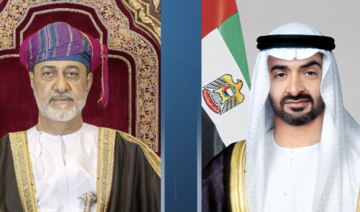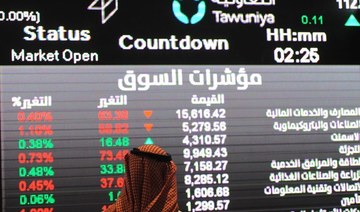NEW YORK: Walmart will soon reach shoppers in India’s massive consumer market directly, as it takes control of the online retailer Flipkart that’s known for its ubiquitous delivery drivers on their motorcycles with oversized backpacks.
The $16 billion controlling stake, announced Wednesday, is the largest acquisition yet by the world’s largest retailer.
Retail sales are being fueled by a hot economy in India, and both Walmart and Amazon have pushed hard to catch up to Flipkart and become the first major US retailer to establish a substantial foothold in the country.
The move, like Walmart’s decision last month to sell its British unit, Asda, reflects the company’s focus on areas with the potential to grow as it tries to narrow the online gap between itself and Amazon.
Online buying in India has exploded in recent years, and Flipkart had net sales of $4.6 billion in its latest fiscal year, That’s a fraction of Walmart’s latest annual revenue of $485.8 billion, but the company sees big long-term potential. Walmart believes India, which has 1.3 billion people, could be the world’s top five-e-commerce markets within the next five years.
“We are actively working to shape the portfolio of geographies and businesses we’re in, in order to set the company up for success for another generation,” Walmart CEO Doug McMillon said in a conference call Wednesday.
Flipkart is, in some ways, an echo of Amazon. Founded in 2007 by two college friends and former Amazon employees, Flipkart began life as an online bookseller.
In a country where many still see paying online with credit or debit cards as risky, Flipkart earned millions of customers in its early years by allowing buyers to pay cash on delivery. It now allows for a variety of payments, from credit cards to gift cards to direct bank transfers.
Flipkart also focused early on mobile phone users, and in 2016 became the first app in India to reach 50 million users.
The Bangalore-based company has acquired a string of other companies in recent years, from fashion e-commerce company Myntra to mobile payment firm PhonePe. Flipkart now has over 100 million registered users and more than 100,000 registered sellers. Flipkart’s supply chain arm, eKart, is established more than 800 cities and makes 500,000 deliveries daily.
Flipkart’s success and Indian law that puts limits on foreign retailers made it an attractive target, and rumors swirled about Amazon also circling Flipkart long after it was reported to be in talks with Walmart.
Foreign retailers, including Walmart, have faced years of political resistance to opening brick-and-mortar outlets in India, where mom-and-pop store owners wield enormous influence.
Walmart’s business in India was previously focused on small businesses. Its Best Price stores, owned and operated by its India division, are only open to members that are all licensed businesses.
Whether the Flipkart deal signals a change remains unclear, but the Flipkart purchase gives Walmart far more influence in India — both politically and economically — and positions it to shift quicker into retail outlets if the regulatory landscape changes.
Walmart will now own about 77 percent of Flipkart, with the rest held by some existing shareholders, including co-founder Binny Bansal, Tencent Holdings, Tiger Global Management and Microsoft Corp. The acquisition surpasses Walmart’s $10.8 billion deal to buy Britain’s Asda in 1999 and its acquisition two years ago of online retailer Jet.com for more than $3 billion.
The deal hasn’t gone down well with the tens of millions of small traders who for years used political muscle to slow the arrival of international retailers.
It is “a clear attempt to control and dominate the retail trade of India by Walmart,” the Confederation of All India Traders said, adding that it would encourage predatory pricing, hurt Indian businesses and create an uneven playing field. The group says it represents some 60 million businesses.
Meanwhile, Amazon is also still fighting hard in India, with founder Jeff Bezos crowing last month that Amazon.in had the most-downloaded shopping app in India for 2017.
“Amazon.in is the fastest growing marketplace in India, and the most visited site on both desktop and mobile,” Bezos said in a letter to shareholders.
The global stakes for both Amazon and Walmart are high. Walmart, which operates stores under various banners in 27 countries outside the US, has faced strong headwinds in its outward expansion.
In China, where more than 700 million people are online, it has struggled to compete with homegrown online giants like Alibaba Group Holding Ltd. and local retail chains like Sun Art Retail Group Ltd. Walmart opened its first store in China in 1996 and has just over 400 stores now. It also has a strategic alliance with Alibaba’s rival, JD.com. Amazon also faces stiff competition in China from Alibaba and JD.com.
Walmart closed 60 stores in Brazil, or 10 percent of its outlets two years ago as it tries to restructure its business.
For the opportunity in India, Walmart will absorb some short-term pain. It expects earnings for the current fiscal year to be hurt by 25 to 30 cents per share. “This is clearly an investment for the future,” said Charlie O’Shea, Moody’s lead retail analyst in a note.
Shares of Walmart Inc. dropped more than 3 percent in trading Wednesday.
Walmart makes a $16 billion bet on India’s booming economy
Walmart makes a $16 billion bet on India’s booming economy
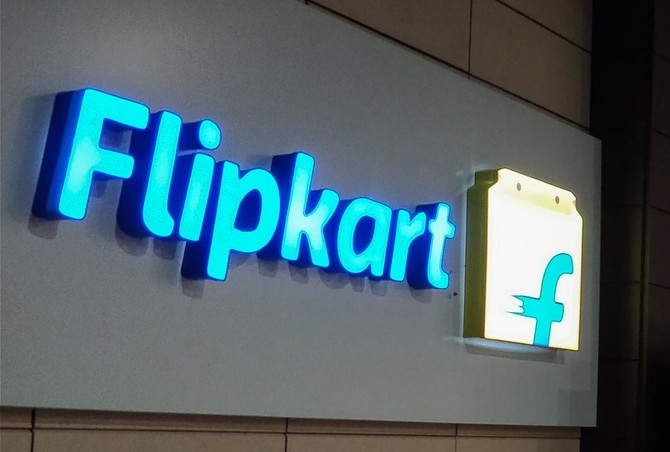
- Wallmart is set to take control of the online retailer Flipkart that’s known for its ubiquitous delivery drivers on their motorcycles with oversized backpacks
- The $16 billion controlling stake is the largest acquisition yet by the world’s largest retailer.
UBS gets green light to open Saudi branch for banking operations
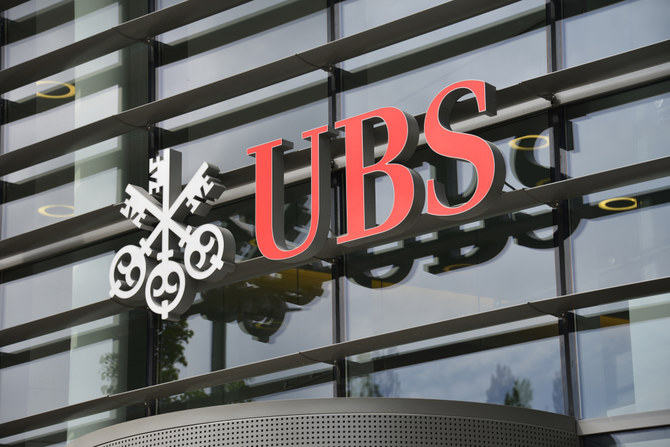
RIYADH: In a move aimed at enhancing Saudi Arabia’s financial landscape, the Kingdom has granted permission for a branch of the Swiss bank UBS to operate within the nation.
According to the Saudi Press Agency, the approval was granted during a session chaired by the Custodian of the Two Holy Mosques, King Salman bin Abdulaziz Al-Saud, held by the Cabinet in Jeddah on April 23.
The session commenced with King Salman briefing the Cabinet on the recent communications and discussions held between the Kingdom and several countries regarding shared relations, regional issues, and global developments, as reported by SPA.
In this context, the Cabinet reaffirmed Saudi Arabia’s steadfast stance toward promoting security and stability in the region and the world.
The Minister of Media, Salman bin Yousef Al-Dossary, stated in a press release following the session that the Cabinet praised the outcomes of the second ministerial meeting of the dialogue between the Gulf Cooperation Council countries and Central Asian countries.
He emphasized the Kingdom’s commitment to continue strengthening communication channels with various countries worldwide and supporting areas of joint coordination, including multilateral efforts.
Additionally, the Cabinet expressed its appreciation for the participants of the forthcoming World Economic Forum special meeting, set to take place in Riyadh in the upcoming week, highlighting the Kingdom’s dedication to encouraging global collaboration and tackling shared challenges.
Moreover, the Cabinet announced that the World Bank had selected Saudi Arabia as a center for knowledge dissemination to promote worldwide awareness of economic reforms, underscoring its leadership in achieving significant progress in global competitiveness indicators.
Al-Dossary further highlighted that the Cabinet applauded the achievement of five Saudi cities in obtaining advanced positions in the 2024 Smart Cities Index.
Following today’s session, the Cabinet approved cooperation agreements with Qatar, the Dominican Republic and the UK as well as Turkey, Chad, Portugal, Hong Kong, and Yemen.
Additionally, the body authorized discussions regarding statistical collaboration with Australia and maritime cooperation with Egypt. It also endorsed anti-corruption agreements with South Korea, archival partnerships with Greece, and financial technology collaboration with Singapore.
Authorization was granted for negotiations on science and technology cooperation with the Bahamas. A unified law for international road transport within GCC countries was approved, and additional compensation was granted to Tabah village’s affected families in the Hail region.
Furthermore, final accounts for various government entities were approved.
UAE and Oman establish $35bn investment partnerships across multiple sectors
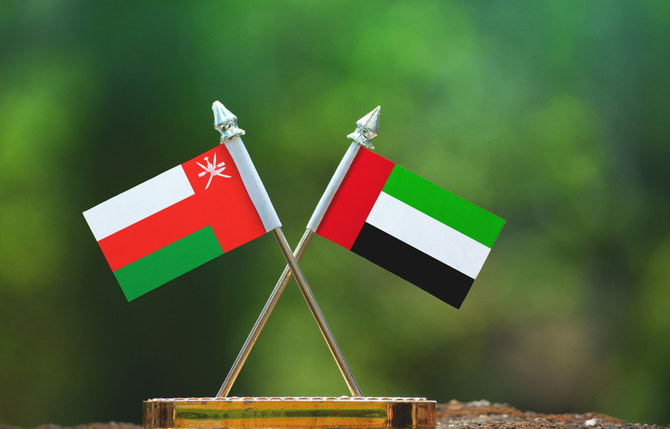
RIYADH: Trade and economic ties between the UAE and Oman are set to further strengthen thanks to the signing of investment deals worth 129 billion dirhams ($35.12 billion).
According to a press statement, these agreements cover multiple sectors, including renewable energy, green metals, railway, digital infrastructure, and technology investments.
Economic ties between the UAE and Oman have remained robust in recent years, with non-oil trade volumes reaching approximately 50 billion dirhams in 2023.
“The UAE and Oman have strong historical relations that are founded on shared values, goals and principles. The agreements represent a major milestone in our bilateral ties, as they pave the way for us to leverage our collective strength to realize our shared vision of advancement and prosperity,” said Mohamed Hassan Al-Suwaidi, UAE’s minister of investment.
One of the major agreements signed by both countries was an industrial and energy megaproject valued at 117 billion dirhams. This project encompasses renewable energy initiatives, including solar and wind projects, alongside green metals production facilities.
The deal’s signatories included Abu Dhabi National Energy Co., Abu Dhabi Future Energy Co., and Emirates Global Aluminium, as well as Emirates Steel Arkan, OQ Alternative Energy, and Oman Electricity Transmission Co.
Another agreement, valued at 660 million dirhams, was signed between Abu Dhabi Developmental Holding Co. and Oman Investment Authority to establish a technology-focused fund.
A UAE-Oman rail connectivity project, valued at 11 billion dirhams, was also inked by both countries.
Additionally, UAE’s Ministry of Investment and the Ministry of Commerce and Trade signed another deal with Oman’s Ministry of Investment Promotion to cooperate in multiple sectors, including digital infrastructure, food security, and energy.
Etihad Rail, Mubadala, and Omani Asyad Group Co. signed a shareholding partnership valued at 3 billion dirhams.
Both countries also announced the formation of a UAE-Oman alliance to enhance bilateral economic and trade relations.
The UAE’s Ministry of Investment, in the press statement, further noted that the signing of these agreements will serve to bolster relations across key sectors and foster socio-economic benefits, contributing toward a stable and prosperous future for both countries.
Influx of Chinese models to drive Mideast EV sales amid global surge
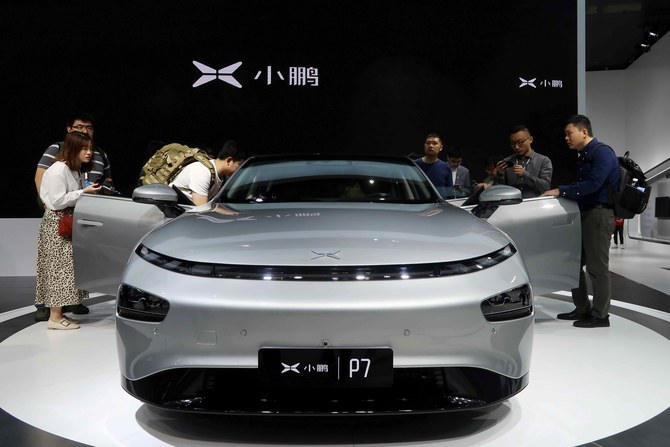
- The IEA report disclosed that global EV sales grew by approximately 25 percent in Q1 of 2024
RIYADH: The entry of Chinese car models in the Middle East could drive regional electric vehicle sales, as global figures are projected to reach 17 million units by 2024.
According to the latest International Energy Agency report, this marks a 21.42 percent increase from the previous year, with nearly 60 percent of new electric car registrations in 2023 occurring in China, followed by 10 percent in the US and 25 percent in Europe.
“The continued momentum behind electric cars is clear in our data, although it is stronger in some markets than others. Rather than tapering off, the global EV revolution appears to be gearing up for a new phase of growth,” said Fatih Birol, executive director of the IEA.
The Global EV Outlook 2024 stated that the electric car market in Africa, Eurasia, and the Middle East is still in its nascent stage, with such vehicles representing just under 1 percent of total sales in these regions.
However, the decision of Chinese carmakers to explore these regions, along with producing vehicles domestically, could change this trend, allowing the market to expand in the coming years.
“In Uzbekistan, BYD (Chinese automaker) set up a joint venture with UzAuto Motors in 2023 to produce 50,000 electric cars annually, and Chery International established a partnership with ADM Jizzakh,” stated the IEA in the report.
This partnership has already led to a steep increase in electric car sales in Uzbekistan, reaching around 10,000 in 2023.
It added: “In the Middle East, Jordan boasts the highest electric car sales share, at more than 45 percent, supported by much lower import duties relative to ICE (internal combustion engine) cars, followed by the UAE, with 13 percent.”
Moreover, in July last year, Saudi Arabia’s Ministry of Investment signed a $5.6 billion deal with Chinese electric car maker Human Horizons to collaborate on the development, manufacture, and sale of vehicles.
Steady growth
The IEA report disclosed that global sales of electric cars grew by approximately 25 percent in the first quarter of this year compared to the same quarter in 2023.
Highlighting the growth of the EV market, the report revealed that the number of electric cars sold globally in the first three months of this year is roughly equivalent to the total units sold in 2020.
The steady growth in the first quarter of this year was driven by China, with 1.9 million EVs sold, marking a 35 percent rise compared to the same period in 2023.
In Europe, the first quarter of 2024 witnessed year-on-year growth of over 5 percent, slightly surpassing the growth in overall car sales and thus maintaining the EV sales share at a similar level to that of last year.
The US also experienced a 15 percent increase in sales in this segment during the first three months of this year, compared to the same period in 2023.
According to Birol, the rise in investments in the electric battery sector is a strong indication of the rise of the EV appetite globally.
“The wave of investment in battery manufacturing suggests the EV supply chain is advancing to meet automakers’ ambitious plans for expansion. As a result, the share of EVs on the roads is expected to continue to climb rapidly,” said the executive director of IEA.
He added: “Based on today’s policy settings alone, almost one in three cars on the roads in China by 2030 is set to be electric, and almost one in five in both the US and the EU. This shift will have major ramifications for both the auto industry and the energy sector.”
EV prices to fall
The report highlighted that the pace of the transition to EVs may not be consistent and will hinge on affordability.
IEA added that manufacturers have taken significant steps to deliver on the strengthening EV ambitions of governments by making significant financial commitments.
“Thanks to high levels of investment over the past five years, the world’s capacity to produce batteries for EVs is well positioned to keep up with demand, even as it rises sharply over the next decade,” said the report.
According to the intergovernmental organization, more than 60 percent of electric cars sold in 2023 were already less expensive to buy than their conventional equivalents in China.
However, the purchase prices for cars with internal combustion engines remained cheaper on average compared to EVs in the US and the EU.
The report suggested that intensifying market competition and improving battery technologies are expected to reduce the prices of electric cars in the coming years.
“Even where upfront prices are high, the lower operating costs of EVs mean the initial investment pays back over time,” said IEA.
Moreover, growing electric car exports from Chinese automakers, which accounted for more than half of all electric car sales in 2023, could add to downward pressure on purchase prices.
IEA also underscored the vitality of ensuring the availability of public charging slots to maintain the steady growth of the electric car market globally.
According to the report, the number of public charging points installed globally was up 40 percent in 2023 compared to 2022, and growth for fast chargers outpaced that of slower ones.
However, IEA added that charging networks globally need to grow sixfold by 2035 to meet the level of electric vehicle deployment in line with the pledges made by governments.
“At the same time, policy support and careful planning are essential to make sure greater demand for electricity from charging does not overstretch electricity grids,” concluded the report.
Closing Bell: Tasi slips for the second consecutive day
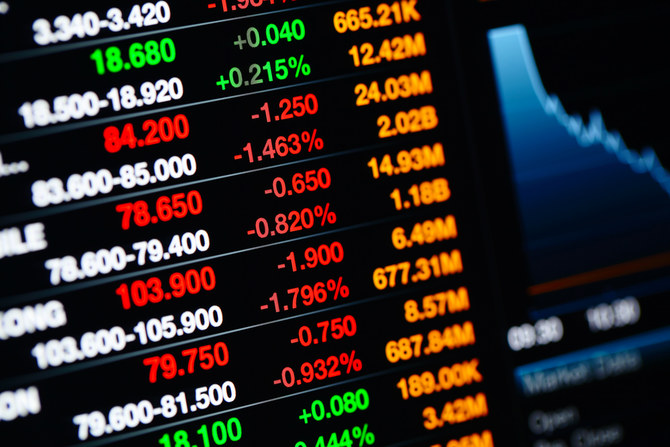
RIYADH: Saudi Arabia’s Tadawul All Share Index continued its downward trend for the second consecutive day as it shed 24.52 points to close at 12,484.41.
The total trading turnover of the benchmark index was SR8.44 billion ($2.25 billion), with 71 of the listed stocks advancing and 157 declining.
On the other hand, Saudi Arabia’s parallel market Nomu gained 95.74 points on Tuesday to close at 26,691.96.
However, the MSCI Tadawul Index slipped by 0.24 percent to 1,563.40.
The best-performing stock of the day was United Cooperative Assurance Co. The firm’s share price rose by 6.67 percent to SR13.44.
Other top performers include Etihad Atheeb Telecommunication Co. and Gulf Union Alahlia Cooperative Insurance Co., whose share prices surged by 4.84 percent and 4.54 percent, respectively.
The worst performer in the main market was Fitaihi Holding Group, as its share price slipped by 4.77 percent to SR4.19.
The parallel market’s positive performance was driven by Osool and Bakheet Investment Co., whose share price soared by 7.83 percent to SR36.50.
On the announcements front, Middle East Paper Co. said it has started its cardboard factory project, which will have a production capacity of 450,000 tonnes.
In a statement to Tadawul, MEPCO revealed that the feasibility study for the project has been completed with a final budget of SR1.78 billion.
The company went on to say that the undertaking would be completed in 42 months.
The initiative will be funded by the MEPCO’s internal resources, by long-term loans from local banks and the use of funds resulting from the issuance of the shares to Saudi Arabia’s Public Investment Fund, the statement added.
Meanwhile, in another statement, MEPCO revealed that it signed another agreement with J.M. Voith SE & Co. KG, for manufacturing, supplying and supervising the installation of the main machine for the cardboard project.
Egypt increases funding needed in 2024-2025 budget by over $59bn
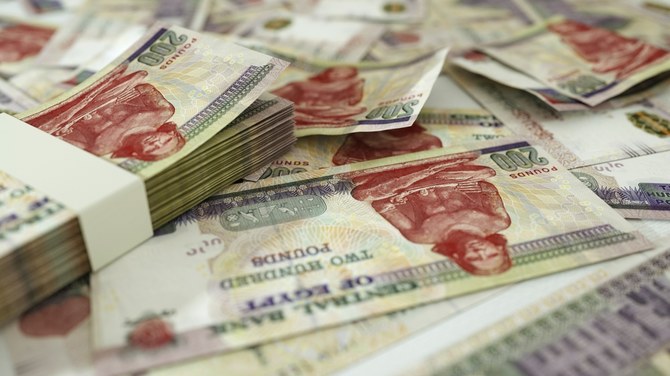
RIYADH: Egypt has increased the amount of funding required in its 2024-2025 budget by over 2.8 trillion pounds ($59 billion) following successive shock waves.
In the financial statement of the new draft budget, Minister of Finance Mohamed Maait highlighted that the changes are reflective of the continuous struggles that the North African country has been facing following the COVID-19 epidemic.
The added funding aims to alleviate the inflationary effects that have been burdening the Egyptian public, improve the standard of living, and meet the developmental needs of citizens, the report said.
The allocation of spending in the budget will also seemingly reflect the needs of individuals by increasing spending on health and education and aiming to improve job opportunities.
Egypt’s economy has witnessed blows over the last half year due to the ongoing crisis in Gaza, which has slowed tourism growth and cut into Suez Canal revenue, two of the country’s biggest sources of foreign currency.
Amid a staggering shortage of foreign currency and rapidly increasing inflation, the challenges prompted the International Monetary Fund to expand its financial support to Egypt to $8 billion in an attempt to shore up the country’s economy.
In a statement in March, the IMF board said its decision would enable Egypt to immediately receive about $820 million.
Similarly, the UAE, represented by a private consortium led by the Abu Dhabi Developmental Holding Co., signed a landmark agreement with Egypt in February to invest $35 billion in Ras El-Hekma, a region on the Mediterranean coast 350 km northwest of Cairo.
Since securing the deal, which marked the single largest foreign direct investment in the North African country, the nation launched some long-sought reforms with the central bank delivering a 600 basis-point interest rate hike and a pledge to unshackle its currency alongside a devaluation.
This led S&P Global Ratings to note that it has been encouraged by the rush of financial support to Egypt, therefore lifting its economic outlook for the country to positive from stable after the long-awaited currency devaluation, which is poised to ease foreign currency shortages.





